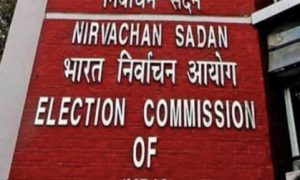Mumbai: During retail chain Big Bazaar’s annual five-day ‘mahabachat’ sale held during the Independence Day weekend, close to two dozen items from Patanjali Ayurved Ltd were available at discounts ranging from 5% to 25%. This may not seem unusual, considering the Big Bazaar sale is well-known for running promotions across categories from televisions to soaps. However, this was the first time the retailer was offering discounts on Patanjali’s products since it started retailing the Haridwar-based company’s goods in 2015.
Discounts on Patanjali’s products were also seen at rival Reliance Fresh during the same weekend. The value retail chain from Reliance Industries Ltd was offering one litre free on a five litre pack of Patanjali Sunflower or Soyabean Oil retailed at ₹499. Again, this is the first time the brand was on discount at the modern retail chain which, despite its key promise of offering savings on every purchase, was unable to do so on Patanjali products.
According to experts, the visible promotions are signs of Patanjali, a company hitherto known to dictate terms of how to retail its products to modern trade retailers, now caving in to their demands as its growth stalled in 2017-18.
“Patanjali is not as hot as it was before,” said Damodar Mall, customer strategy officer at Reliance Retail, while explaining this is not due to the appeal of the brand diminishing with the consumers. This is about the organization’s need to build the everyday, boring part of the fast moving consumer goods business—‘consistency.’ “Its (Patanjali’s) availability on the retail shelves has sank. That impacts demand,” said Mall.
Additionally, there is the increased competition from rivals, with new launches in the herbals and naturals space, and aggressive pricing. For instance, Parag Milk Food’s Gowardhan’s premium cow ghee with an MRP of Rs525 per litre is available at Rs435 at Reliance’s value stores and online, whereas Patanjali’s desi ghee pack of 1 litre has an MRP of Rs500.
Likewise, in the last year, oral care majors like Colgate-Palmolive India Ltd have launched herbal variants like Colgate Swarna Ved Shakti which is being heavily promoted with various schemes across modern trade retailers.
Interestingly, even Patanjali has an ongoing promotion scheme on Amazon.in from vendor Trisha Enterprises on its Dant Kanti Toothpaste. A value pack of two toothpaste units of 200g and 100g along with one toothbrush sold at an MRP of Rs112, is now available at Rs100.
“Patanjali has definitely been the cause of creating awareness and unprecedented demand in the natural/herbal segment. Not just Patanjali, but most companies operating in this segment have slowly seen significantly higher traction. In some segments, they are doing better than Patanjali,” said Neville Noronha, managing director and chief executive officer of Avenue Supermarts Ltd which runs D-Mart.
The company, though, is still not publicising these promotions. “The call for these ongoing promotions have been taken at the modern retailers’ level. At a company level, there is no change in our policy,” said Patanjali spokesperson S.K. Tijarawala.
All the same, changes are underway. “The company has moderated its advertisement spend and is also focusing on managing logistic costs. Planned geographically diversified production base would also help them in this,” said analysts at Brickwork Ratings.
“We have recently implemented a SAP management information system across our network of modern stores, Patanjali Chikitsalay network stores and Arogya Kendra stores,” said Tijariwala, while explaining this will help the company get inventory updates on a weekly and fortnightly basis, allowing it to replenish and forecast demand more effectively. “Earlier, our inventory management was done manually,” he added.
In 2017-18, Patanjali’s growth stagnated for the first time after growing exponentially the previous four years, Mint reported in May. In 2016-17, the company had more than doubled its revenues year-on-year to Rs10,561 crore from Rs5000 crore a year-ago. The company had attributed the decline in growth rate to the implementation of the Goods and Service Tax and demonetization.
The company, however, is confident of meeting its long-term commitment of becoming India’s largest FMCG company by 2021, said Tijariwala. This will happen as it continues to expand its product portfolio and operations. On 13 September, the company plans to share its dairy foray plans and also enter the packaged water segment with Divya Jal.
For more updates: Like us on Facebook and follow us on Twitter & Instagram




































